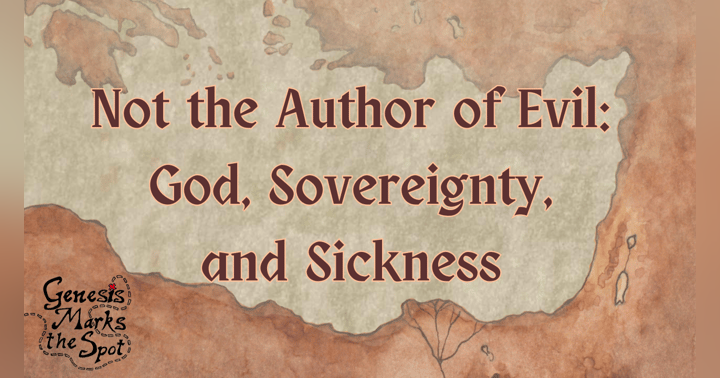Exile: An Annotated Bibliography

In episode 068 of Genesis Marks the Spot, I reviewed some literature on the topic of exile. Rather than put a mess of links into the show notes, here is that list of books, with some others added to it for good measure. I don't promise that this is anywhere near an exhaustive list, nor that I'm not missing some potentially obvious choices, but I can tell you that this list does provide a range of thoughts concerning the topic.
So that you can make reasonable reading choices, I am annotating this bibliography with some brief notes, current thoughts, and reactions. I've organized this list into categories, but in general they are in no particular order. (As always, check for these resources in Logos, your library/Hoopla, or on Audible. I'm giving Amazon links not because I'm getting any kickbacks--I'm not--but because it's easiest.)
General Biblical Theologies on Exile
These are generally-approachable books that are suitable for the lay reader. Some may find them heavy/difficult reading due to the number of ideas that may be unfamiliar, so for some, reading these may feel like drinking from a firehose. But they are well-written and easily followed with extensive footnotes.
The Story of Israel: A Biblical Theology
This book traces the theme of the Israel throughout the Old and New Testaments, focusing on exile as a major player in the themes of the Bible. The authors of this book seem to align with some of the ideas of Dr. NT Wright concerning the idea of the continued exile of the Jews in the first century.
Good for a small group study, this book does have discussion questions at the end of chapters.
Rebels and Exiles: A Biblical Theology of Sin and Restoration
Focusing on the pattern of sin - exile - repentance - restoration, this book tracks those themes and discusses the impact of them on the biblical narrative, with a strong focus on the work of Jesus. Though Dr. NT Wright is mentioned often in the book, the authors clearly land stringently on the side of a concern that we should not discount the reality of penal substitutionary atonement--an idea I would disagree with, but nonetheless find this a helpful beginning-level introduction to tracking a theme through Scripture and showing how that theme forms a cohesive narrative and lens.
More Academic Work
A Biblical Theology of Exile by Smith-Christopher
Mentioned in my above-linked episode, Smith-Christopher comes from a Quaker background and looks at the topic of exile with a dual lens of biblical theology and psychological studies of current refugees.
The Death of Deaths in the Death of Israel: Deuteronomy's Theology of Exile
Besides being one of the coolest titles I've ever seen, this book (based on a dissertation if I recall correctly) fleshes out the theme of exile in light of Deuteronomy specifically. Technical and itself giving some "reviews" of applicable literature, if you're into biblical studies and reading academic work, I highly recommend this one.
Exile and Restoration: A Study of Hebrew Thought of the Sixth Century B.C. by Peter Ackroyd
A Theology of Exile: Judgment/Deliverance in Jeremiah and Ezekiel by Thomas M. Raitt
Israel in Exile: A Theological Interpretation by Ralph W. Klein
Theology of the Prophetic Books: The Death and Resurrection of Israel by Donald Gowan
The Deuteronomistic History
The Deuteronomistic History by Martin Noth
The original work that spelled out the idea of the Deuteronomistic History. (Hint: remember archive.org exists!)
Introduction to the Hebrew Bible: The Deuteronomistic History
Textbook centered on the books Deuteronomy to 2 Kings.
Exile and Identity Formation
Why the Bible Began: An Alternative History of Scripture and Its Origins
There's no good reason why the word "alternative" is in this title, as the author lands in the realm of an exilic formation of the Hebrew Bible (Old Testament), like many, many other scholars do. I can only suppose it is a publisher's idea to spice up the title.
The author is a historian, not coming from the perspective that the Bible is authoritative/normative, but neither is he trying to dismantle the idea of sacred scripture. He simply asks, why? Why did the Bible form, from the perspective of human history? What did it do? Why did it have the impact that it did?
The answer is, in short, that the Bible was a formative book for forging identity. The counter-cultural narrative of the Bible kept together a people who were in exile.
N.T. Wright and Exile
Just read his books. Listen to him speak on YouTube and podcasts.
Okay, just kidding, slightly--but N.T. Wright is often a difficult read for many, and it's hard to choose the best option for this topic. Here's some options, anyway. ;)
The New Testament and the People of God
Exile: A Conversation with N.T. Wright
This book contains information from N.T. Wright as well as several other counter essays.
Check back for more edits!
edited March 29, 2024








